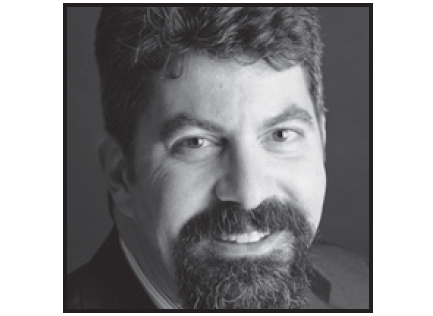Ethical behaviour ideally leads to nothing bad happening. Which is a lot cheaper than something
By Paul Paton
TRYING TO EXPLAIN the value of getting – and taking – ethics advice up front can be an exercise in frustration. I've had experience doing it as a law firm lawyer, in government, as in-house counsel and as an external expert, and I'm always aware of the folks who are skeptical about spending any money on someone like me to keep them on the straight and narrow. That's why I love stories like the Patton Boggs settlement with Chevron this May — because it lets me put a price tag on the value of being ethical.
In a 22-page settlement between the firm and Chevron Corp., Patton Boggs LLP agreed to pay $15 million (all figures US$) to Chevron and to give up its stake in a contingency-fee agreement relating to the enforcement of a $9.5-billion judgment by an Ecuadorean court against the energy concern. A group of 47 plaintiffs, known as the “Lago Agrio Plaintiffs” (LAPs), had filed suit against Chevron in Ecuadorean provincial court in 2003 on behalf of thousands of indigenous people relating to environmental damage caused by Texaco Inc. (which Chevron later acquired). That suit resulted in a 2011 judgment against Chevron of approximately $18.2 billion, reduced on appeal to $9.5 billion.
In 2010, 2011 and 2012, Patton Boggs entered into certain agreements with the LAPs to represent them in efforts to enforce the judgment against Chevron in countries other than Ecuador, where the energy giant no longer has assets. Such actions are still pending in Argentina, Brazil, Ecuador and Canada. The agreement made clear that the firm's arrangement would entitle it to up to 5 per cent of any proceeds of the judgment, in addition to recovering all costs and unpaid fees.
The problem? The Ecuadorean litigation itself. In February 2011, Chevron filed a RICO (Racketerring Influenced and Corrupt Organizations Act) claim alleging fraud, tortious interference and unjust enrichment against the LAPs and certain counsel, including Patton Boggs co-counsel Steven Donziger (though not against Patton Boggs itself). After a spiderweb of suits and counterclaims, a March 2014 RICO judgment (an appeal from which is pending) bars any effort by Donziger and other defendants to enforce the Lago Agrio Judgment in the United States or to profit from it.
Ultimately, District Judge Lewis Kaplan concluded that “the LAP team wrote the Lago Agrio court's Judgment themselves and promised $500,000 to the Ecuadorian judge to rule in their favor and sign their judgment. If ever there were a case warranting equitable relief with respect to a judgment procured by fraud, this is it.” An April 1 report in the Wall Street Journal noted that Donziger maintained his innocence and was appealing Kaplan's verdict. Patton Boggs's general counsel was quoted as saying, “Patton Boggs remains proud of our work on behalf of the indigenous and farming communities residing in the Oriente region of Ecuador.”
On April 29, however, the firm's action against Chevron was dismissed — and it was game over. Patton Boggs, without admitting to any liability, agreed to pony up $15 million, withdraw from representing the LAPs, assign to Chevron any money the firm would be entitled to from its representation (which American Lawyer pegged at potentially $475 million), and agreed to assist Chevron with discovery and make two of its partners available for depositions.
Kaplan's verdict made the difference: the firm, in a statement, said the decision “included a number of factual findings about matters which would have materially affected our firm's decision to become involved and stay involved as counsel here. … Based on the court's findings, Patton Boggs regrets its involvement in this matter.”
There's much more to this story, which may come out eventually. In the meantime, to me it's a cautionary tale about the promise of riches, and the price to be paid for not saying “no.”
Paul Paton, a long-time legal ethics columnist, is the new dean of the University of Alberta's Faculty of Law. He can be reached at [email protected].
By Paul Paton
TRYING TO EXPLAIN the value of getting – and taking – ethics advice up front can be an exercise in frustration. I've had experience doing it as a law firm lawyer, in government, as in-house counsel and as an external expert, and I'm always aware of the folks who are skeptical about spending any money on someone like me to keep them on the straight and narrow. That's why I love stories like the Patton Boggs settlement with Chevron this May — because it lets me put a price tag on the value of being ethical.
In a 22-page settlement between the firm and Chevron Corp., Patton Boggs LLP agreed to pay $15 million (all figures US$) to Chevron and to give up its stake in a contingency-fee agreement relating to the enforcement of a $9.5-billion judgment by an Ecuadorean court against the energy concern. A group of 47 plaintiffs, known as the “Lago Agrio Plaintiffs” (LAPs), had filed suit against Chevron in Ecuadorean provincial court in 2003 on behalf of thousands of indigenous people relating to environmental damage caused by Texaco Inc. (which Chevron later acquired). That suit resulted in a 2011 judgment against Chevron of approximately $18.2 billion, reduced on appeal to $9.5 billion.
In 2010, 2011 and 2012, Patton Boggs entered into certain agreements with the LAPs to represent them in efforts to enforce the judgment against Chevron in countries other than Ecuador, where the energy giant no longer has assets. Such actions are still pending in Argentina, Brazil, Ecuador and Canada. The agreement made clear that the firm's arrangement would entitle it to up to 5 per cent of any proceeds of the judgment, in addition to recovering all costs and unpaid fees.
The problem? The Ecuadorean litigation itself. In February 2011, Chevron filed a RICO (Racketerring Influenced and Corrupt Organizations Act) claim alleging fraud, tortious interference and unjust enrichment against the LAPs and certain counsel, including Patton Boggs co-counsel Steven Donziger (though not against Patton Boggs itself). After a spiderweb of suits and counterclaims, a March 2014 RICO judgment (an appeal from which is pending) bars any effort by Donziger and other defendants to enforce the Lago Agrio Judgment in the United States or to profit from it.
Ultimately, District Judge Lewis Kaplan concluded that “the LAP team wrote the Lago Agrio court's Judgment themselves and promised $500,000 to the Ecuadorian judge to rule in their favor and sign their judgment. If ever there were a case warranting equitable relief with respect to a judgment procured by fraud, this is it.” An April 1 report in the Wall Street Journal noted that Donziger maintained his innocence and was appealing Kaplan's verdict. Patton Boggs's general counsel was quoted as saying, “Patton Boggs remains proud of our work on behalf of the indigenous and farming communities residing in the Oriente region of Ecuador.”
On April 29, however, the firm's action against Chevron was dismissed — and it was game over. Patton Boggs, without admitting to any liability, agreed to pony up $15 million, withdraw from representing the LAPs, assign to Chevron any money the firm would be entitled to from its representation (which American Lawyer pegged at potentially $475 million), and agreed to assist Chevron with discovery and make two of its partners available for depositions.
Kaplan's verdict made the difference: the firm, in a statement, said the decision “included a number of factual findings about matters which would have materially affected our firm's decision to become involved and stay involved as counsel here. … Based on the court's findings, Patton Boggs regrets its involvement in this matter.”
There's much more to this story, which may come out eventually. In the meantime, to me it's a cautionary tale about the promise of riches, and the price to be paid for not saying “no.”
Paul Paton, a long-time legal ethics columnist, is the new dean of the University of Alberta's Faculty of Law. He can be reached at [email protected].
Firm(s)
Patton Boggs LLP





